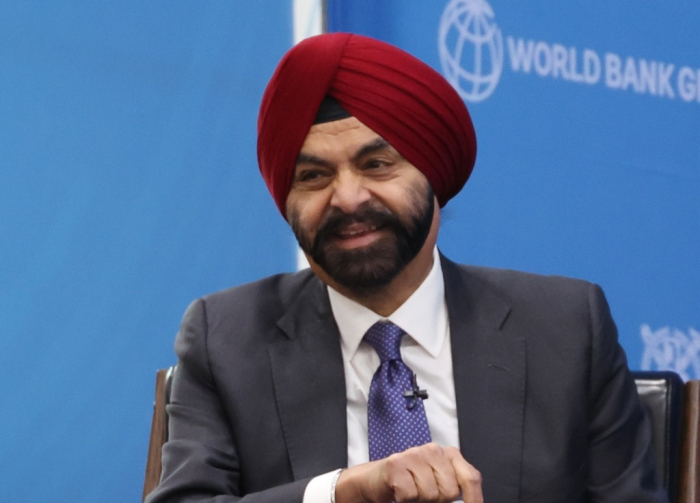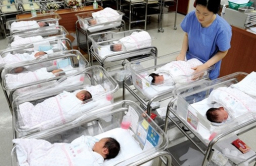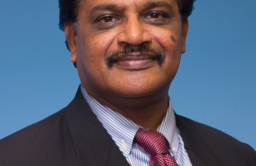-
KOSPI 2577.27 -2.21 -0.09%
-
KOSDAQ 722.52 -7.07 -0.97%
-
KOSPI200 341.49 +0.02 +0.01%
-
USD/KRW 1396 -2.00 0.14%
Korea needs population growth for sustainability: World Bank chief
Economy
Korea needs population growth for sustainability: World Bank chief
The energy, healthcare and education sectors in Africa offer opportunities for South Korean companies, Banga says
By
Jan 25, 2024 (Gmt+09:00)
3
Min read
News+

World Bank President Ajay Banga said on Thursday that South Korea needs to boost population growth by easing the fierce competition in education and increasing support for raising children to sustain the future of Asia’s fourth-largest economy.
Banga, who visited Seoul as part of his trips to the organization’s member countries after his inauguration last June, also said that South Korean companies will be able to create business opportunities in Africa.
“We need growing populations, as you know well in South Korea, to be able to keep and sustain the future," Banga told reporters in Seoul. ”If schooling and the costs of bringing up a child become so expensive or so competitive that it becomes really hard and harsh on families, then they tend to reduce their desire to have children.”
South Korea has been suffering a low birth rate and an aging population, which are expected to worsen labor shortages. The country’s total fertility rate, which hit a record low of 0.7 in the third quarter of 2023, is forecast to fall further.
Banga also cited the gender disparity in income as one of the most serious challenges to population growth not only in South Korea but also in the world.
“If you don't ensure that women are compensated adequately for the burden they bear for enabling their population to grow, it leads to complexity,” he stressed. “If you don't take care of that, it becomes harder for young people with both people working to find the way to be willing to take time out to have children.”
AFRICA, LAND OF OPPORTUNITY
Banga said Africa can be a new market for South Korean companies as the continent is lagging far behind other regions in industries such as power, healthcare and education.
“Some 600 million people in Africa do not have access to any electricity,” he said, adding renewable energy and smart grids offer “big space for an opportunity.”
The healthcare sector is also expected to create an opportunity, Banga said.
“Developing healthcare that can be available in concentrated urban areas but also in distributed rural areas is very important, including devices, medicines as well as the dissemination of care.”
South Korean companies with various experiences and technology can contribute to the growth in developing markets, including Africa, Banga said.
“It's financial capital, technology and human capital that they need,” he said referring to developing countries. “Korean banks and Korean companies have great balance sheets, human capital and technology.”
The country’s small and medium-sized enterprises with experiences and expertise are “very useful” in the development of emerging economies, he said.
Developing countries should take a lesson from South Korea as it became one of the advanced countries after overcoming many problems such as deep poverty and financial crises, he said.
“We've got many challenges in the emerging economies and I think there are many lessons that can be drawn from the kind of experience that Korea has had.”
Banga said South Korea’s economic fundamentals are healthy as the country is home to powerhouses of major industries.
“Every economy goes through its ups and downs but (today) it's basically a much stronger economy,” he said. “It has companies that have deep expertise in everything ranging from shipbuilding to automobiles to chips through electronic gadgets, consumer industries. It’s got the whole range.”
Write to Se-Min Huh at semin@hankyung.com
Jongwoo Cheon edited this article.
More To Read
-
Dec 11, 2023 (Gmt+09:00)
-
Jul 14, 2023 (Gmt+09:00)
-
Jul 12, 2023 (Gmt+09:00)





